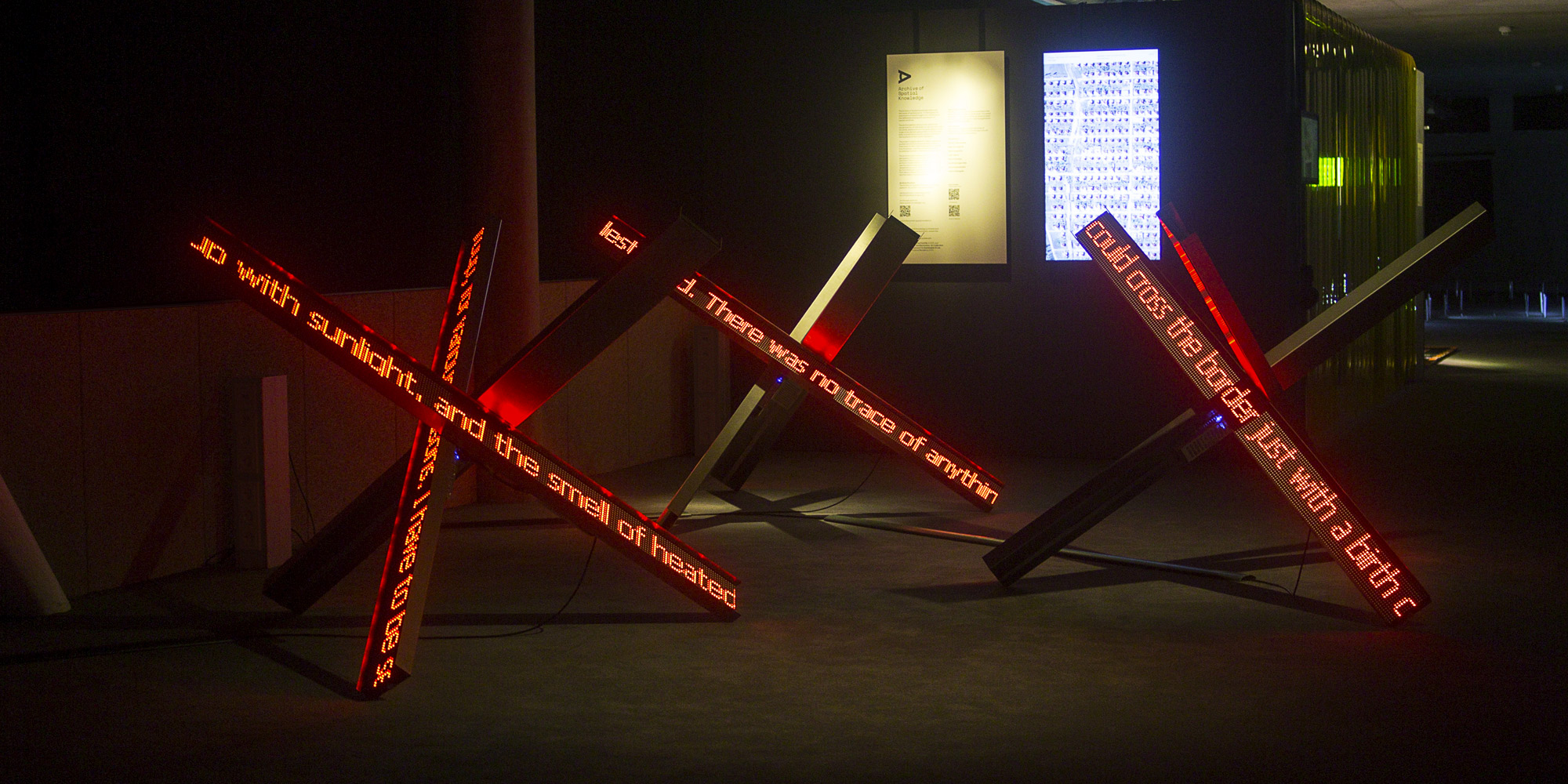With the focus of the Art Collection Deutsche Telekom on contemporary art from Eastern Europe, the second iteration of the ArtScience residency will be dedicated to artists from, or who stand in relation to this region, who work at the intersection of art, technology and science and who are particularly interested in researching the social impact of technological developments.
Type: Residency
Duration: 2022
Country: Germany
The residency aims to foster interaction between international artists, researchers and scientists and Eastern European partners from research or industry. It intends to create a space for encounters in which artistic practice and scientific research can be combined in the best possible way.
“Life is for Sharing” –this is who we are, and this is what we stand for. We will not stand for hate or isolationism. Instead, our networks create connections between people. They overcome boundaries. They promote sharing. And they contribute to the creation of communities.
Timotheus Höttges, Chief Executive Officer (CEO), Deutsche Telekom AG
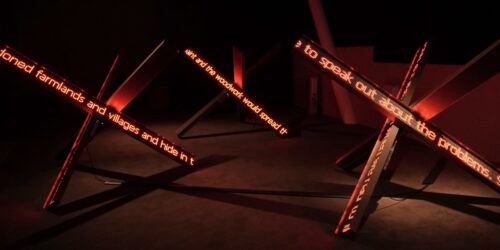
This was the second ArtScience Residency
Migration and displacement pose some of the biggest humanitarian challenges of our time. The winner of this year’s ArtScience Residency enabled by Art Collection Deutsche Telekom, Irakli Sabekia, addressed the issues of spatial justice in his project the “Archive of Spatial Knowledge”.
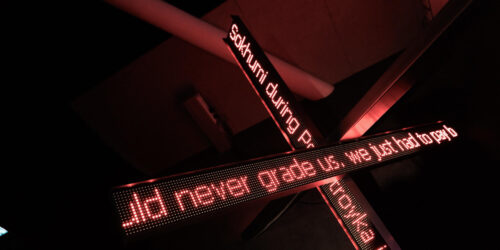
Archive of Spatial Knowledge
Archive of Spatial Knowledge is an experimental digital platform. It collects the spatial and social memory of people who have been forcibly displaced or denied spatial rights in their current place of residence. The archive’s digital tool enables contributors to link their memories to physical places on a virtual level. At the same time, viewers can use the platform to access the erased knowledge on site and thus juxtapose invisible stories and the reality of physical spaces.
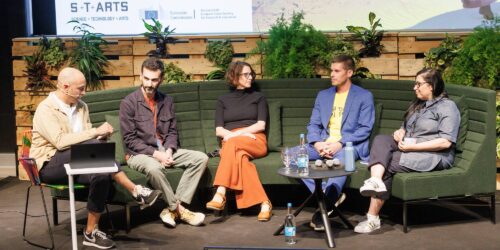
Residency. But How?
Residency programs offer an opportunity for Artists or Scientists to swap their respective point of view – from working in an atelier to testing their skills in a laboratory context and vice versa – thus encouraging the exchange of ideas and building of new conceptiual models for problem solving.
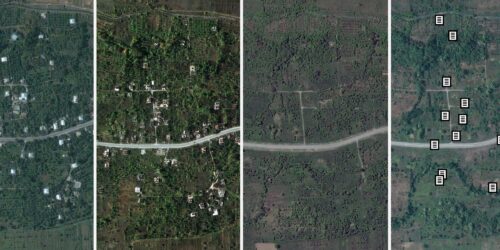
Tools to Confront Unbalanced Realities
What rights do you have in the location of your residence? In his work, artist Irakli Sabekia deals with the spatial and social memory of people who have been forcefully displaced.
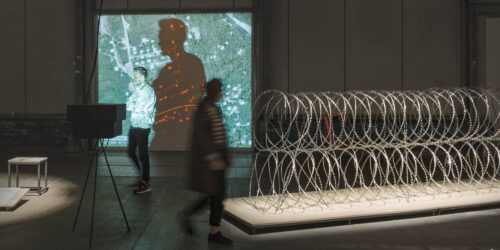
User Manual for Digital Humanists: ArtScience Special
This year’s ArtScience Residency recipient Irakli Sabekia will present his artistic work, followed by a conversation with Prof. Dr. Aimee van Wynsberghe, providing insights into his collaboration with the Bonn Sustainable AI Lab.
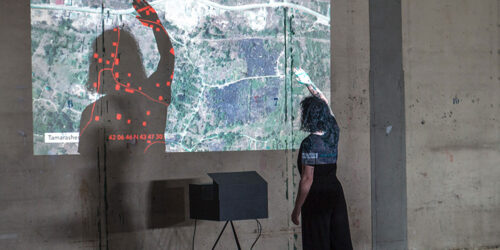
And the Winners of the ArtScience Residency are…
In the jury meeting two winners were selected for the two remaining open residency positions in 2022 and 2023. The Ars Electronica and Art Collection Deutsche Telekom team welcome Irakli Sabekia and Špela Petrič for these two positions.
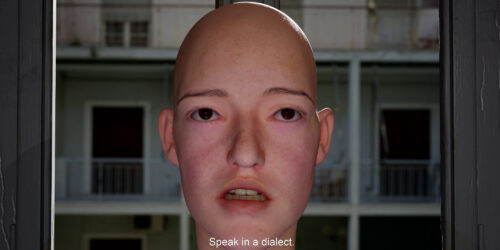
ArtScience Residency 2022 Open Call
Together with Ars Electronica the Art Collection Deutsche Telekom enables artistic research through science collaboration within the framework of the ArtScience residency. The goal is to exhibit an artwork dedicated to the challenging questions around digitalization and AI at the Ars Electronica Festival in September 2022.
Scientific Partner
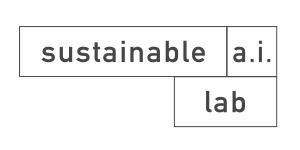
In 2022, the Bonn Sustainable AI Lab, located at the University of Bonn’s Institute of Science and Ethics, will act as scientific partner. It will offer the artist in residence an introduction and access to the scientific research of the Sustainable AI Lab, which is focused on addressing the often hidden environmental and related social and economic costs of designing, developing, and using AI across society.
The research done in the lab covers the impact of AI in diverse settings (e.g., migration, city development, healthcare, data collection and analysis, art). The questions to be explored span multiple disciplines and levels of analysis, for example: the normative rationale for the value of sustainability; the strength of the concept of sustainability; how to measure the environmental costs of AI; understanding the intergenerational impacts of AI; and informing public policy guidelines for the development of green, proportionate, and sustainable uses of AI. The lab will offer the artist a workshop with the whole Sustainable AI Lab team as well as one-on-one meetings with the members of the lab to introduce him/her to their research. The scientific residency will be supervised by the Alexander von Humboldt Professor for Applied Ethics of AI, Prof. Dr. Aimee van Wynsberghe and her team at the Sustainable AI Lab, and the external researcher and advisor to the lab Dr. Gry Hasselbalch.
About Art Collection Deutsche Telekom
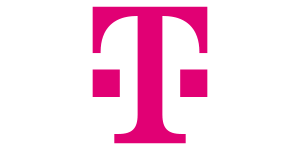
The Art Collection Telekom was founded in 2010. It focuses on contemporary art from Eastern and South-eastern Europe and also looks to neighbouring countries such as Turkey or the Caucasus region. It has a European integrative orientation, because it wants to include the East of Europe in the discourse. It is open to all media, from the traditional, artisan techniques such as painting, drawing or sculpture to performance and video works. Since its foundation, it has followed the growing use of digital techniques in the production of art and artistic developments in social media.
The art of the Art Collection Deutsche Telekom seems to question the self-evident. It humorously points out prejudices and is a means of communication about the jointly shared and developed reality with a specific perspective on the history and current developments in Eastern Europe. The concentration on the area of countries which, after the fall of the Iron Curtain, have created new political structures and had initiated democratic developments, includes significant political, social and cultural changes. The Art Collection Deutsche Telekom makes an important contribution to an open, discursive and communicative culture, which is of great importance for mutual understanding in Europe.
